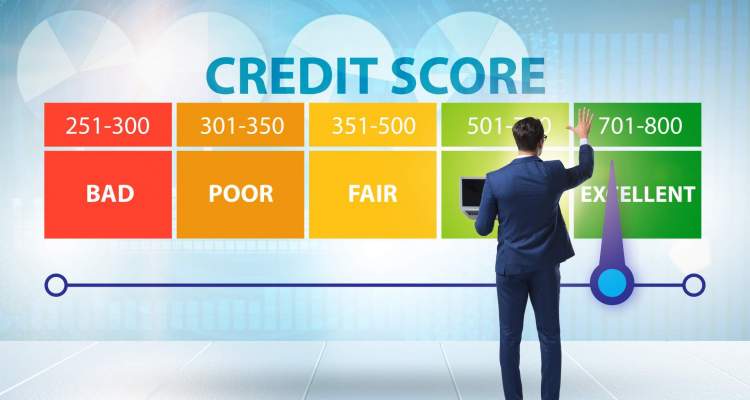
Did you know that by applying for credit you could hurt your own credit score?
Effective since last week, it is now possible to get your credit report online. Equifax Canada has just introduced online access to your credit bureau report. However, it is not free – online access will cost you $19.95. If you also want to know your credit score that will cost you an extra $5.00. It is interesting to note, that if you apply by fax or in-person in most provinces it is free – download the request form. However, the bureaus will not give you your credit score.
It now appears the credit bureaus have discovered a way to make us pay for the retrieval of our own personal information.
Credit scoring has proved to be the financing industry’s most reliable and quickest method of checking a borrower’s credit. Until now, the scoring part of your credit history has not been available to you.
Fair Isaac & Company produced the most well-known scoring system, and it is often referred to as a FICO score. A score is a number ranging from 300 to 900.
Usually, the score is added to a consumer’s credit report at the request of the lender. The number is calculated by analyzing the consumer’s past credit history, although scorers keep their statistical scoring methods secret. Lenders can use the score to help predict the future performance of the consumer on a loan. The lower the credit score, the greater the probability of default and vice versa.
There are many variables that are taken into account when scoring, and these are grouped into five categories.
The categories are:
- Previous credit performance
- Current level of debt
- Amount of time credit has been in use
- Pursuit of new credit
- Types of credit used
The scoring system is quite elaborate. The system evaluates how all of these variables interrelate and compliment each other. The system even takes into account thousands of other mortgage repayment histories and their borrowers’ credit histories.
Out of interest to prospective borrowers as well as lenders, FICO scores include “reason codes”. These codes reveal what has had the most influence on lowering a credit score, such as:
- Current delinquency
- Too few accounts currently paid as agreed
- Too many credit inquiries (seeking new credit) in the last 12 months
- Proportion of balances to credit limits is too high on revolving accounts (maybe at or near the maximum amount allowed on the charge accounts)
- Too many revolving accounts
- Too many “finance company” accounts
- Too many accounts opened in the last 12 months
Canada’s largest credit bureaus are TransUnion and Equifax – they handle the data for calculating a person’s credit score. The scores are released under names such as Equifax BEACON, TransUnion EMPIRICA – FICO.
Beacon: Equifax developed this scoring system in association with Fair, Isaac, and Company, Inc. Beacon identifies and projects the full range of serious consumer credit risks which include bankruptcies, write-offs, repossessions, loan defaults, and serious delinquencies.
Empirica: This scoring system was developed by TransUnion in association with Fair, Isaac, and Company, Inc. Empirica has been fully validated to predict the performance odds, slow pays, no pays, and bankruptcies with unprecedented accuracy.
Why do creditors use credit scoring?
Credit scores are objective and consistent. Most importantly, they can help predict loans, credit cards, credit, etc default. Research has shown mortgages with lower credit scores did indeed have significantly higher default rates than mortgages with higher scores.
Industry research has also endorsed the use of credit scores because of their predictive power. The research suggests that applicants with low credit scores should have offsetting strengths, such as a larger down payment, lower debt-to-income ratios, more cash reserves, and/or a history of a good payment record on housing expenses.
In addition, credit scoring can be incorporated into the new automated underwriting systems now being used more and more frequently.
Things to know about credit scoring
- A lender should never deny a loan solely on the basis of a credit score.
- A low score may simply indicate a need to more carefully scrutinize a potential borrower.
- Any change in credit activity or performance will result in a change to the score. For example, if derogatory information is reported for an account, the credit score will decrease. If a consumer works to remove this derogatory information, the score will increase.
- A score of more than 660 can simply require a basic review by the underwriter, 660 down to 620 may require a comprehensive analysis. A score of 620 or lower will dictate a cautious, detailed study. If your score happens to below, you may want to improve it.
Some suggestions to improve your score
- Pay your bills on time, even if it’s just the minimum due.
- Don’t max out your credit cards.
- Don’t add new credit cards unnecessarily – write in and close any you have but don’t use.
- Check your credit score and credit before making any applications to lenders.
- Check your credit report once a year, and read it carefully to make sure it’s accurate.
Studies have shown that 47% of the time, a credit bureau file contains some errors.
Credit Solutions offers consumers the opportunity to repay their creditors and become debt-free. Debt-free may mean a higher credit score.






